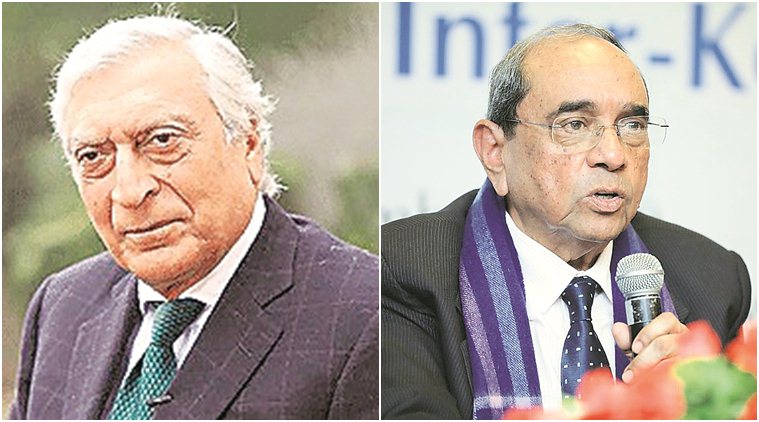 Former foreign secretary Kanwal Sibal (L), Former foreign secretary Shashank.
Former foreign secretary Kanwal Sibal (L), Former foreign secretary Shashank.
Following the death of 20 Indian Army personnel in clashes with the Chinese Army, former Foreign Secretary Kanwal Sibal said that India should stand firm militarily on the border and at the same time expand political options against China.
Shashank, also a former Foreign Secretary, said that a big difference in Chinese activity at the border this time is that the Chinese aggression appears to be playing out “all along the LAC” and not in one particular geographical area picked by that country.
Speaking to The Indian Express, Sibal said, “It will have a serious impact on India-China relations… India has to stand firm militarily on the border at whatever cost. But that would make sense only if, at the same time, we open our political options against China in areas where their interests would be as deeply hurt as they hurt ours through actions such as raising the Kashmir issue in the UNSC and opposing our membership of the NSG. These options are with regard to Dalai Lama, Tibet, Taiwan and Hong Kong.”
He added, “Let me clarify that all these political options should not be exercised at one go, but progressively depending on China’s conduct. But the scope of our political retaliation should be expanded. Immediately, we should formally exclude Huawei from 5G trials. India has to be extremely watchful of China’s manoeuvres against us in the region, especially in our neighbourhood.”
Sibal was foreign secretary from July 2002 to November 2003, and was also ambassador to Turkey, Egypt and France.
Speaking about the situation at the LAC, Shashank told The Indian Express, “This is the major difference, that the Chinese aggression does not seem to be limited or localised to one area. Their (Chinese) scope seems to have widened to neighbouring countries. What we really need to look at is if China has been persuading neighbouring countries like Pakistan and Nepal to have taken a more strident anti-India stance. China is also becoming more violent in its reactions… is this only against Indian soldiers? Or is it also with other neighbours in areas like the South China Sea, Taiwan, Hong Kong etc? We need to look into this as well. This is definitely the bloodiest stance that the Chinese have taken against India.”
Shashank, who was Foreign Secretary of India from December 2003 to July 2004, and also ambassador to Denmark, South Korea and Libya, said, “There seems to be a radical shift in China’s stance, not only against India but possibly in the neighbourhood as well. There can be a number of reasons for this. First, there has been a build-up on anti-China sentiment in Asia, especially in light of the pandemic. Although India may not be, India is still perceived as being prominent in this sentiment. This despite the many bilateral meetings that Prime Minister Narendra Modi engaged in or initiated… Scholars are saying the Chinese government is facing difficulties domestically as well. In this context, India seems to be the closest and easiest target to hit out at. While the Indian government has been under pressure, why did they not anticipate this change in China’s mood?”
Shashank maintained that India should “continue to build its infrastructure” along the LAC. “That has been India’s change in stance. That over the past six-seven years, initiated by the previous government and implemented by the present, we have started augmenting our infrastructure along the border. This is imperative to fortify our troops and be prepared for any eventuality. This has possibly come as a surprise to the Chinese who had so far believed that India was all talk and no action.”
He added that a war with China “is simply not in India’s best interest. We need to find a solution through bilateral dialogue, but simultaneously be prepared for any eventuality.”